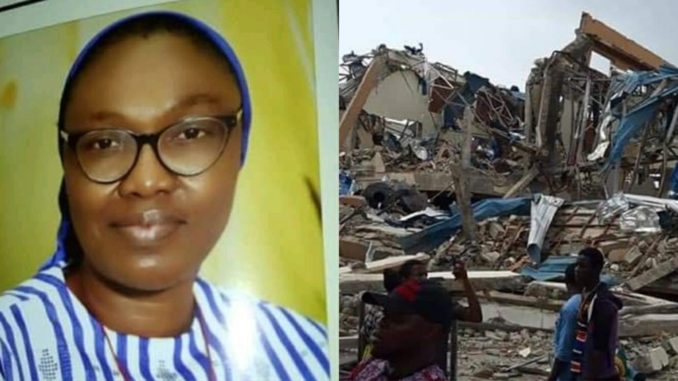In the past few weeks we have witnessed three modes of succession in Africa: a coup, an election, and a death in office. Former Malian president Amadou Toumani Toure fell in a coup led by army officers on Mar. 22. A few days later, Senegalese president Abdoulaye Wade lost in a run-off election to a much younger and wildly popular opposition candidate, Macky Sall. Only weeks later, Malawian president Bingu wa Mutharika suffered a sudden and fatal heart attack, paving the way for vice president Joyce Banda to take the reigns. Now Mali’s coup leaders are themselves facing yet another transition as an interim president is ushered in.

The results in Mali and Senegal are being celebrated, one could say, as the christening, or perhaps the confirmation, of democracy. An election carried the day in Senegal and an unconstitutional takeover of government in Mali is being rolled back. Malawi could pass too. Joyce Banda is the new president, thwarting a feudal-like succession of wa Mutharika by his brother. Still, Malawi remains a work in progress.
For most people, presidents and prime ministers are conjured up imaginings both grand and grotesque. We talk about some as tyrants or despots. Others we call “father of the nation” or perhaps, philosopher-king. While we know that these individuals are human, their reputations – whether good or bad – often make it difficult to think of them as such.
I don’t often spend time with heads of state, but two years ago I attended the 2010 African Union Summit in Kampala, where dozens of leaders had come to gather. At that conference were many of the almost mythical characters we spend our days talking and writing about. Among them, Muammar Gaddafi, Abdoulaye Wade, Mwai Kibaki, Goodluck Jonathan, and Bingu wa Mutharika, the latter of whom chaired the session. These men (and yes, they were nearly all men) suddenly became real to me in a way they had never been before. They were no longer an abstract idea but flesh and blood, sitting around a satin green and white clothed table in a tent pitched on the banks of Lake Victoria. They sipped water and waited for translations in their headphones. At that moment, they did not seem powerful so much as vulnerable.
Sometime last year I woke up to the awful footage of a bleeding Gaddafi, dragged and beaten through the streets near his hometown of Sirte, Libya. My first thought, after my horror, was of the sunny days of the summit when for a brief moment Gaddafi was not an abstract “tyrant” but a terribly mortal human being, even if an extravagant one. Then a few days ago, the news of wa Mutharika’s passing again brought me back to memories of the summit, watching and listening to the Malawian president’s numerous speeches. This is not, of course, to say that there were many similarities between the two former leaders, apart from one thing – they were both men, in the mortal sense of the word.
I rarely have such opportunities to see the human side of world leaders, but it strikes me that leaders themselves inevitably do. Watching the fall of Toure, Wade, and wa Mutharika must be terrifying for many current office holders. Here they have not one but three distinct (and yes, plausible!) means of losing power. The greatest asset for many long-time leaders is precisely their non-human qualities. It is the creation and sustenance of a myth of invincibility, the suspension of reality. You can be sure this myth is in place when you cannot imagine a future without the Dear Leader, when a person and nation get fused together. Gaddafi and Libya is a perfect example of this. So too is Mobutu and Zaire, Mugabe and Zimbabwe, Kim Jong-Il and North Korea, the Saudi royalty and their kingdom. Often these men live so long that you even begin to believe that something supernatural must be at work. Alas, all things good and bad must come to an end.
Leaders, however powerful and long-lived, are increasingly bombarded with reminders of their own mortality, political or otherwise. So too are their publics. The myth of invincibility is deteriorating quickly, and its destruction accelerates with every political transition. As a leader, what lessons can be learned from these recent turnovers?
For one thing, the increasing strength of political institutions cannot be overlooked or underestimated. The days of overrunning constitutional power are not over, as the case of Mali demonstrates, but their days are numbered. The triumph of constitutionalism in Senegal, Malawi and even Mali provides evidence that the supremacy of the law is very often real. Articles of the constitution may seem innocuous and pliable, but they provide a focal point for society. The law, written clearly for all to see, provides a line in the sand between just and unjust. Those who dare to cross that line do so at their own peril.
Moreover, the legacies of leaders are increasingly dependent on their respect for and adherence to these maturing political institutions. Leave the political playing field graciously and you will be heralded as a champion of democracy and progress. Stick around to play by the old rules, and you will likely find yourself kicking and screaming all the way to The Hague.
Finally, if leaders worry over their own mortality, they had best get their national hospitals in tip top shape. This business of flying to South Africa (much less Singapore) for medical treatment, a luxury reserved only for the elite, is absurd. South Africa is too far when a health crisis strikes, even if you have your own personal jet. If it takes selfish fear on the part of leaders to prompt the development of good medical facilities, so be it. No one said development has to be an entirely selfless enterprise. Just get on with it already.




